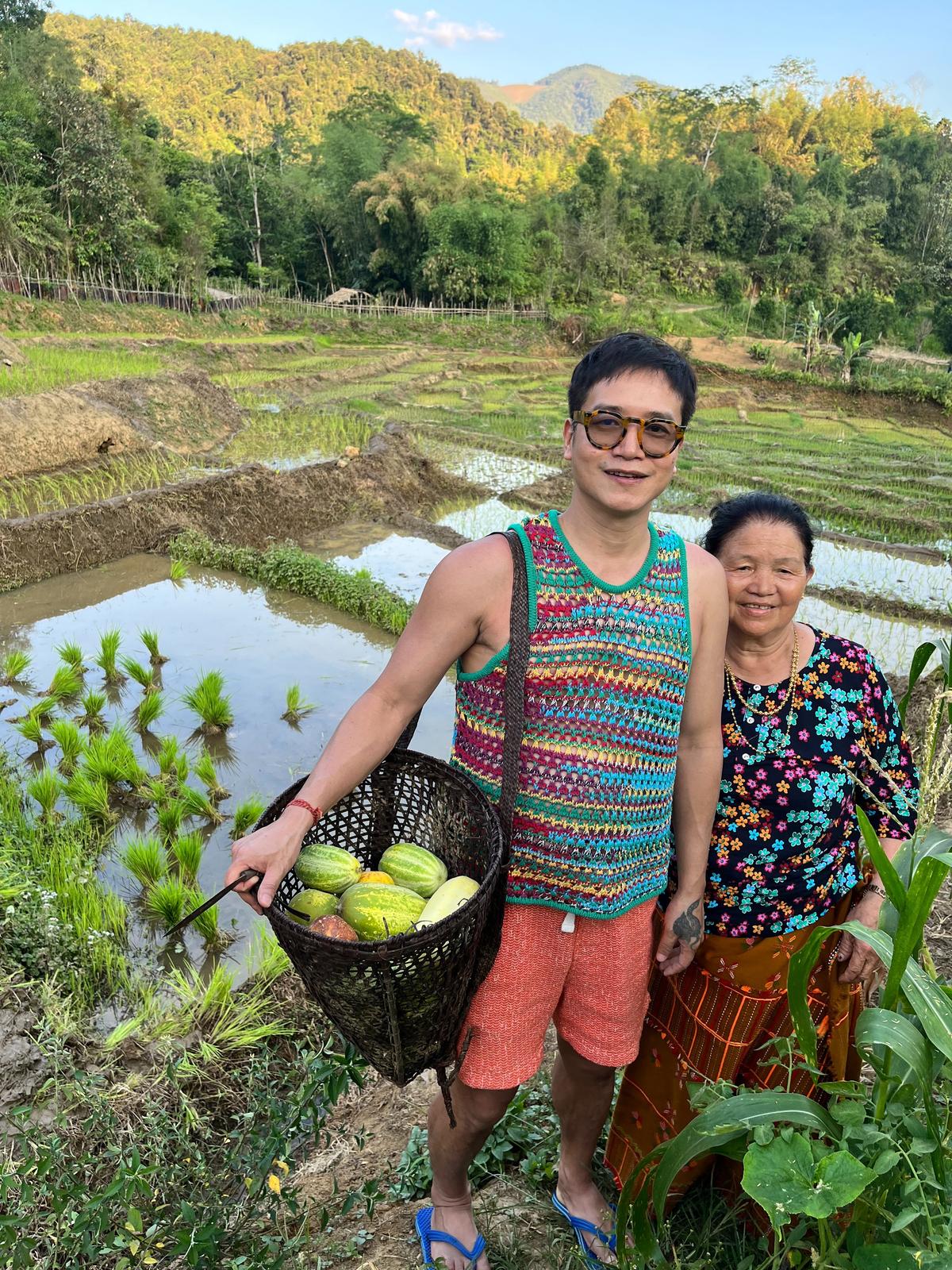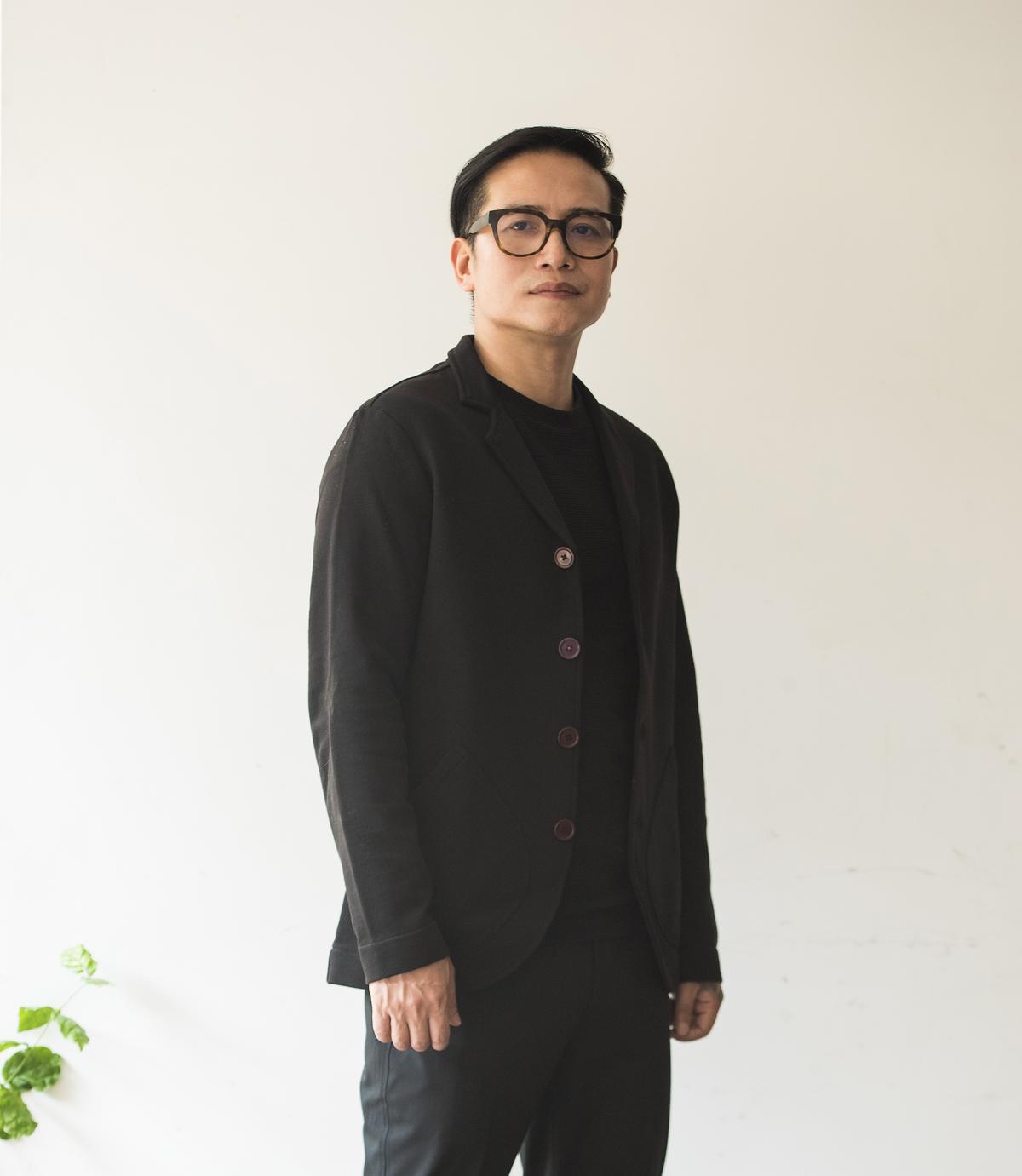[ad_1]
Born in a small village in Arunachal Pradesh called Tirbin, noted fashion designer Jenjum Gadi’s memories of childhood are rooted in the essence of his time spent at home. Having grown up in a place with little or no access to entertainment, his leisurely pursuits as a young boy in the 1980s comprised climbing trees, chasing bees, swimming in rivers, catching fish and hiking in the mountains. Nature was his only playground and that is where he derives inspiration from for his debut art show, Apase, which literally translates to ‘assorted fruits’ in Gadi’s native Gato dialect.
“In my village, every house has a garden. [Instead of flowers] we grow vegetables and fruits in them. My mother, who is a farmer, has always lived in the village and throughout her life, she has sown the seed for every single fruit and vegetable that grows in our garden,” he says. “Spending time there has deeply influenced my creative work, and this connection to nature has now extended into my designs. Apase is my attempt to revisit those memories and give them a tangible form,” says Gadi.

Jenjum Gadi with his mother
A bite of brass
A stunning assemblage of 16 three-dimensional fruit models, fashioned in solid brass, each representing a fruit and vegetable from Gadi’s mother’s garden, adorn the hall of Bikaner House’s Vayu. The centrepiece of Apase is a 12 x 44 inch banana bunch, while the rest of the fruits — pineapples, papayas, jackfruits, lemons, pumpkins, and pomegranates — rest in small groups exuding a humble glory. A heady whiff of fresh jasmine flowers intensifies the intended mood of an overall jardin experience.
Brass fruits on display
A platter of assorted fruits
Rupa, a small village in Arunachal Pradesh is where Gadi found local artisans skilled at creating traditional brass items for Tibetan monasteries. Later, his visit to Tawang, the westernmost part of the State and home to the oldest and second-largest Buddhist monastery in Asia, affirmed his interest in the craft of employing real fruits as moulds and transforming them into eternal brass renditions.
In his Delhi garden, Gadi grows a variety of fruits like mangoes, papayas, avocados, custard apples, bananas, and lemons, depending on the season. His favourite, however, is the orange. “Orange trees are usually thorny, but the thorns tend to diminish as the trees age. I have fond childhood memories of plucking oranges and playing with friends in the orchard, the sweetness of the fruit offsetting the few bruises we got from the thorns,” he reminisces.
Coconuts cast in brass
Bringing Northeast to the mainstream
Gadi is one of the few designers and artists who represent the Northeast, and even though he has managed to successfully draw attention to the region, sparking conversations about many aspects of life there — food, culture, issues like racism and discrimination — the art landscape he feels, demands more representation.

Jenjum Gadi
| Photo Credit:
Avneesh Kumarr
“The process is slow but it has commenced, which is a start. One artist who comes to mind is Chandan Bez Baruah, a talented printmaker who is raising awareness about life in the Northeast through his work. [Now] I have noticed a new generation of young artists emerging from the region. The idea is to raise awareness about the people, who they really are and where they come from. It is important to chronicle their journeys creatively as possible,” he says.
Gadi’s talents are wide-ranging — from designing clothes to creating art, to acting in films. I ask him when we will see him on the big screen again, but he dismisses the idea with a laugh: “I was so shy and bad in my audition for Axone [a 2019 comedy-drama directed by Nicholas Kharkongor] that even though they wanted to cast me for one of the leading roles, they didn’t. That’s not happening anytime soon.”
Apase is currently on display at Bikaner House.
[ad_2]
Source link




